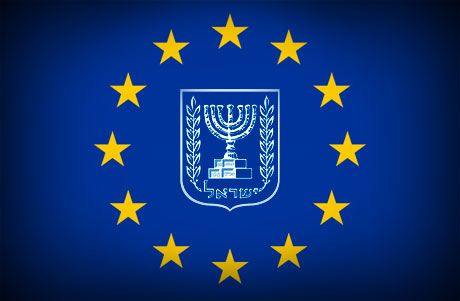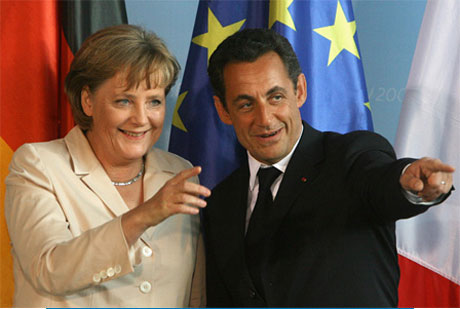The recent war in Gaza has served to highlight the European Union's relations with Israel. Although the genocide in Gaza has embarrassed many EU officials, there are no signs that the European Union is going to suspend the EU-Israel Association Agreement signed in 2004. According to this Agreement, Israel became a partner of the European Union within the framework of the EU's European Neighbourhood Policy (ENP). According to the ENP Internet site, the European initiative seeks to develop the EU's relations with other states on the basis of "the mutual commitment to common values (democracy and human rights, rule of law, good governance, market economy principles and sustainable development)." Although Israel continues to violate all these values and principles on a daily basis and is also the country holding the record of non-compliance of UN resolutions, the EU Council and Commission decided on December 8 to boost the relations between the Union and Israel through the approval of a Protocol to the Agreement. For the first time, EU foreign ministers spoke of inviting Israel to a bilateral summit and to take part in missions related to its defense policies. Furthermore, EU ministers decided to put aside a proposed action plan to promote the peace process in the Middle East in 2009, after Israel demanded the EU to do so. The new six-month Czech presidency of the European Union is thought to be interested in strengthening the links between the Union and Israel. Czech Foreign Minister, Karel Schwarzenberg insisted, after the beginning of the Israeli offensive in Gaza, that Israel had "the right to defend itself", according to the Reuters news agency. Later, he was forced to change this statement. Many Europeans feel outraged by these European overtures towards Israel, which is behaving like Nazi Germany used to and they do not want their money to be used for sustaining Israel's criminal policies.
Israel has carried out a genocidal offensive against the Gaza Strip and is taking Palestinian lands in the West Bank and East Jerusalem (Al-Quds) in order to expand its illegal settlements, a fact that is destroying any possibility of a peace process as it prevents the creation of any Palestinian state deserving such a name. Moreover, the Israeli army has been aiding fanatic Zionist settlers to attack helpless Palestinian in Al Khalil (Hebron) and other cities. As a result of this, large sectors of European public opinion consider Israel to be a huge threat to world peace. During the recent protests against the Israeli genocide in Gaza, hundreds of thousands of Europeans condemned EU leaders' policies towards Israel. More than 100,000 people participated in a demonstration in Paris while in London, 200,000 demonstrators condemned Israel's crimes. Placards exhibited by the participants were clear enough: the genocide, the criminal blockade, the crimes against humanity and war crimes committed by Israel in Gaza had to be stopped. The demonstrators denounced the fact that many European leaders were totally blind to the brutal genocide that was being carried out against 1.5 million Palestinians in the Gaza Strip, where Israel has imposed a siege in order to deny Gazans food and medical care. This blockade has been compared by many, including Richard Falk, the UN Rapporteur of Human Rights in the Palestinian Territories, to that suffered in the Warsaw Ghettos. Sergio Yahni, Director of the Al Quds-based Alternative Information Center (AIC) has called the agreement of the EU Council and Commission "a failure of the international legal system." In a telephone interview with Ma'an agency, Yahni said the agreement was "the first time since World War II that the European community has actually regressed in its protection of human rights." Some European officials have started to react to this popular clamor and on December 11, the European Parliament decided to postpone the vote on the new agreement. The Parliament's Vice President, Luis Morgantini, said that the Parliament would not pass the new agreement until Israel respects international law and human rights. Morganitni said that the decision of the Parliament intended "to send a clear message to the Israeli government that their brutal policies in the Occupied Palestinian Territories are not going unnoticed and that the cries of the Palestinians, humanitarian workers and political activists are not falling on deaf ears." She added that the vote was also a signal to the EU Council and Commission, which were probably embarrassed by the Parliament's vote that they had to put pressure on Israel to stop its colonization of the 1967 occupied Palestinian territories. In the United Kingdom and under popular pressure, the Foreign Office warned British citizens against buying properties in illegal Zionist settlements in Palestinian territories. Foreign Office officials said that they would take possible measures against newspapers that publicized ads on real estate in the Israeli-occupied territories. Settlements are considered illegal under the Fourth Geneva Convention, which prohibits an occupying power from moving its nationals into the occupied territory. As a result of this decision, Yuval Steinitz, a possible candidate for the post of Israeli foreign minister - if the right-wing Likud party wins in the upcoming parliamentary election in February - advised the UK to abandon this campaign and accused the country of 'anti-Semitism'. "When Israel is boycotted one should wonder if there is no implicit anti-Semitism," he said. For his part, EU's Humanitarian Aid Commissioner, Louis Michel, told the Belgian daily La Libre Belgique that Israel was not respecting international human rights laws. "The first obligation is that an occupying power must preserve the lives of the population, protect them, feed them and look after them. That is manifestly not the case and I cannot accept it," Michel said. Michel also condemned Israel's shelling of a UN compound in Gaza calling for an independent investigation. However, although the negotiations between the European Union and the Israeli apartheid regime have been put on hold, many European citizens fear that this step is only a "technical postponement", as Israeli Foreign Ministry spokesman, Yigal Palmor has claimed. EU's ambassador in Israel, Ramiro Cibrian-Uzal, has also downplayed the possibility of European sanctions against Israel due to the Gaza war. "The European Union has never contemplated, to my knowledge, has never seriously envisaged sanctions," Cibrian-Uzal said. While no measures have been taken in Europe against Israeli media, some of which are permanently making an apology for the genocide, Hamas's television channel, Al Aqsa, was forbidden in Europe less than 24 hours after it was added to the France-based Eutelsat network. This channel is, however, available in Arab networks. The measure was adopted after French regulators received a letter of complaint from the Simon Wiesenthal Centre. Some European leaders such as Nicholas Sarkozy and Angela Merkel continue to give their unconditional support to Israel, which makes them real accomplices of its policies. Merkel gave her full backing to the criminal attacks by Israel on Gazans. The German government spokesman, Thomas Steg said that Merkel, in a telephone call to Israeli Prime Minister Ehud Olmert, had declared that Hamas was "exclusively" responsible for the conflict, a lie that has been repeated by some other European leaders who have not said a word about the suffering of the Gazan people. Merkel & Sarkozy Actually, after the victory of Hamas in the democratic elections in 2006, European leaders, following the trend imposed by Israel and the US, boycotted the new government. When all its attempts to topple the Hamas government failed, Israel imposed a siege, preventing supplies of food, medicine and fuel from entering Gaza. This provoked a serious humanitarian crisis. About the 95% of Gaza's factories were forced to close down and 80% of the people there started to depend on international assistance. Despite all this, Hamas respected a ceasefire agreement with Israel that was agreed on in June 2008. On the night of November 4, the day of the US elections, Israel fired missiles on Gaza violating the truce. Following that, Israel bombed the Strip over the next six weeks killing dozens of Palestinians. "The escalation towards war could, and should, have been avoided. It was Israel which broke the truce, in the tunnel raid ... two months ago," the Israeli peace group Gush Shalom wrote in a press release. "Since then, the army went on stoking the fires of escalation with calculated raids and killings." On January 23, the French leader, Nicolas Sarkozy ordered a French frigate to start to patrol the waters off Gaza in order to "fight arms smuggling" to Gaza. A helicopter-carrier could also be sent there.
British and German governments also stated that they could take part in operations against smuggling. It is noteworthy to point out that these operations will be carried out "in full cooperation" with Israel. This way, these governments are clearly aligning themselves with Israel and trying to keep Hamas disarmed, a goal that Israel failed to achieve during the war. Sarkozy, who had recently said that he would not shake the hands of the Iranian President, Mahmoud Ahmadinejad's for his public criticism of the Zionist regime, has not had any problem shaking the hands of notorious war criminals such as Israeli Prime Minister, Ehud Olmert or Foreign Minister, Tzipi Livni.
The pro-Israeli biased policies of some European countries risk alienating and radicalizing the large Muslim minorities in Europe and damage relations with the southern Arab neighbors, which completely identify themselves with the suffering of the people in Gaza. There is no doubt that EU's decision to upgrade relations with Israel despite the latter's brutal oppression of the Palestinians and its grave violation of human and civil rights of the Palestinians is an insult to Arabs and Muslims all over the world. This European stance towards Israel does not satisfy the interests of EU's member states. Moreover, it contradicts the values that the European Union claims to defend and promote. Actually, the current economic and political axis in the world is starting to move towards Asia and any European policy supporting Israel and ignoring the views of Arab and Muslim masses will certainly have far-reaching negative consequences for long-term European interests. Furthermore, the European decision to upgrade its relations with the Israeli apartheid regime means to award the Israeli genocidal policies in Gaza, to betray the core values on which the European Union was built and to destroy the international legal system created to prevent a repetition of the crimes committed during the Second World War in European countries: massacres, expulsions and ethnic cleansing.
|


Sem comentários:
Enviar um comentário